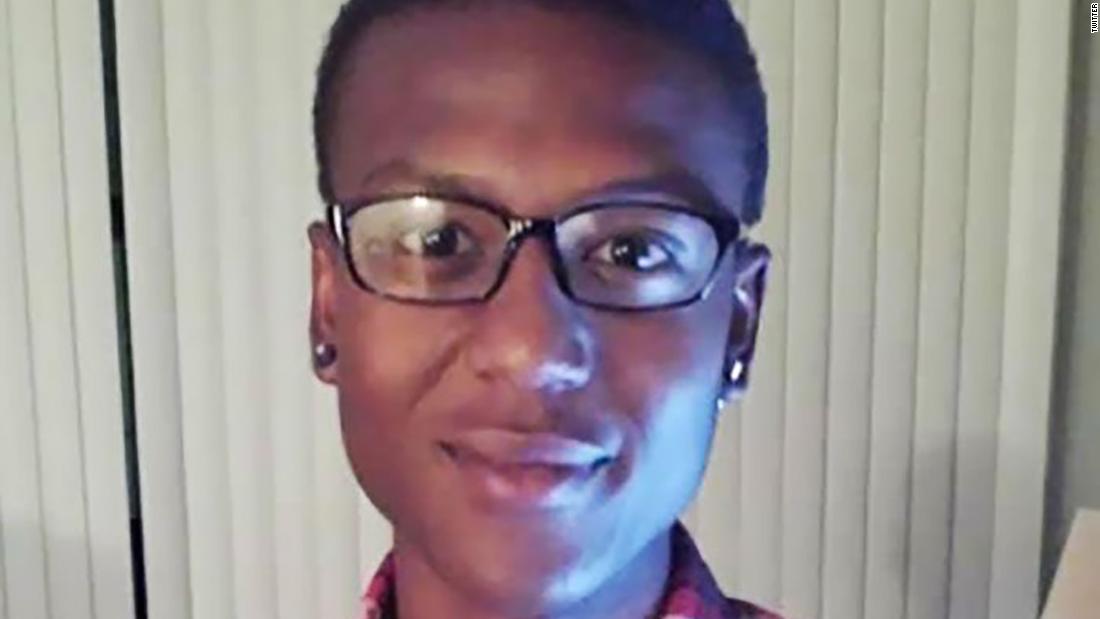A grand jury has indicted five officers and paramedics involved in the 2019 death of the 23-year-old Black man
Then-Aurora Police Department officers Randy Roedema, Jason Rosenblatt and Nathan Woodyard and Aurora Fire Rescue paramedics Jeremy Cooper and Peter Cichuniec were each indicted on charges of manslaughter and criminally negligent homicide as part of a 32-count indictment.
In addition, Roedema and Rosenblatt were each indicted on one count of assault and one count of crime of violence, and Cooper and Cichuniec were each indicted on three counts of assault and six counts of crime of violence.
“We’re here today because Elijah McClain is not here and he should be,” Weiser said. “When he died he was only 23 years old. He had his whole life ahead of him and his family and his friends must now go on and must live without him.”
The grand jury returned the results of the investigation on Thursday, the eve of the second anniversary of McClain’s death.
McClain’s mother, Sheneen McClain, told CNN in a phone interview that she was excited by the news of the indictments and thanked Weiser, his team and the grand jury.
“I started crying because it’s been two years,” she said. “It’s been a long journey, you know, and it’s overwhelming. I’m still processing it, you know, because this is one of those things that has never really been done and is being done right here because of my son, so it’s overwhelming.”
McClain’s father, LaWayne Mosely, wept tears of joy at the news, according to a statement from his attorney.
“Nothing will bring back my son, but I am thankful that his killers will finally be held accountable,” Mosely said in the statement.
CNN is seeking comment from the Aurora Police Department, Aurora Fire Rescue, and the defendants.
A civil investigation into the APD and AFD patterns and practices of civil rights violations is ongoing, Weiser said.
How McClain died
The caller described the person as “sketchy” but added he “might be a good person or a bad person.” A police news release said McClain “resisted contact” with officers before a struggle ensued.
“I’m an introvert,” McClain said in video recorded by body worn cameras after officers confronted him. “Please respect the boundaries that I am speaking.”
“Relax,” an officer said at one point, “or I’m going to have to change this situation.”
Before an officer wrestled him to the ground, McClain told the officers he was trying to stop his music so that he could listen to them. During the struggle, one officer said, “He just grabbed your gun, dude.” One officer told McClain that he will “bring my dog out and he’s going to bite you” if McClain kept “messing around.”
A letter from the Adams County District Attorney said an officer placed McClain in a carotid hold, which restricts blood flow to the brain. McClain briefly lost consciousness, the letter said, but continued struggling after officers released the hold.
The DA’s letter said paramedics arrived and administered ketamine, a powerful anesthetic. McClain was taken to a hospital but had a heart attack on the way. He was declared brain dead three days later, on August 27, the letter said.
The autopsy conducted by the county coroner did not determine the cause of death but noted “intense physical exertion and a narrow left coronary artery” were contributing factors.
However, an investigative report released in February, paid for by the Aurora City Council, provides a more critical perspective on the police’s and paramedics’ decisions. The report criticized the officer’s decision to stop McClain in the first place, which it said “did not appear to be supported” by any officer’s reasonable suspicion that McClain was engaged in criminal activity.
The three officers also frisked McClain for weapons, which is legally allowed only where there is a belief that safety is in danger, the report states. The panel was not able to identify sufficient evidence that he was armed and dangerous to justify a frisk.
The report also notes the sharp contrast between officers’ comments about McClain’s strength and the audio and video of the incident.
“The officers’ statements on the scene and in subsequent recorded interviews suggest a violent and relentless struggle,” the report states. “The limited video, and the audio from the body worn cameras, reveal Mr. McClain surrounded by officers, all larger than he, crying out in pain, apologizing, explaining himself, and pleading with the officers.”
CNN’s Amir Vera and Dakin Andone contributed to this report.
![]()


